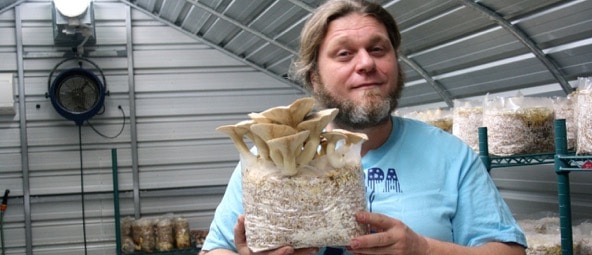
One of the most delightful things that comes out of our courses is when we hear stories months, or sometimes years, later about students heading off to start their own enterprises based on what they’ve learnt.
Even better when that comes full circle and those students start supplying us with materials to teach the next lot of students – as happened recently!
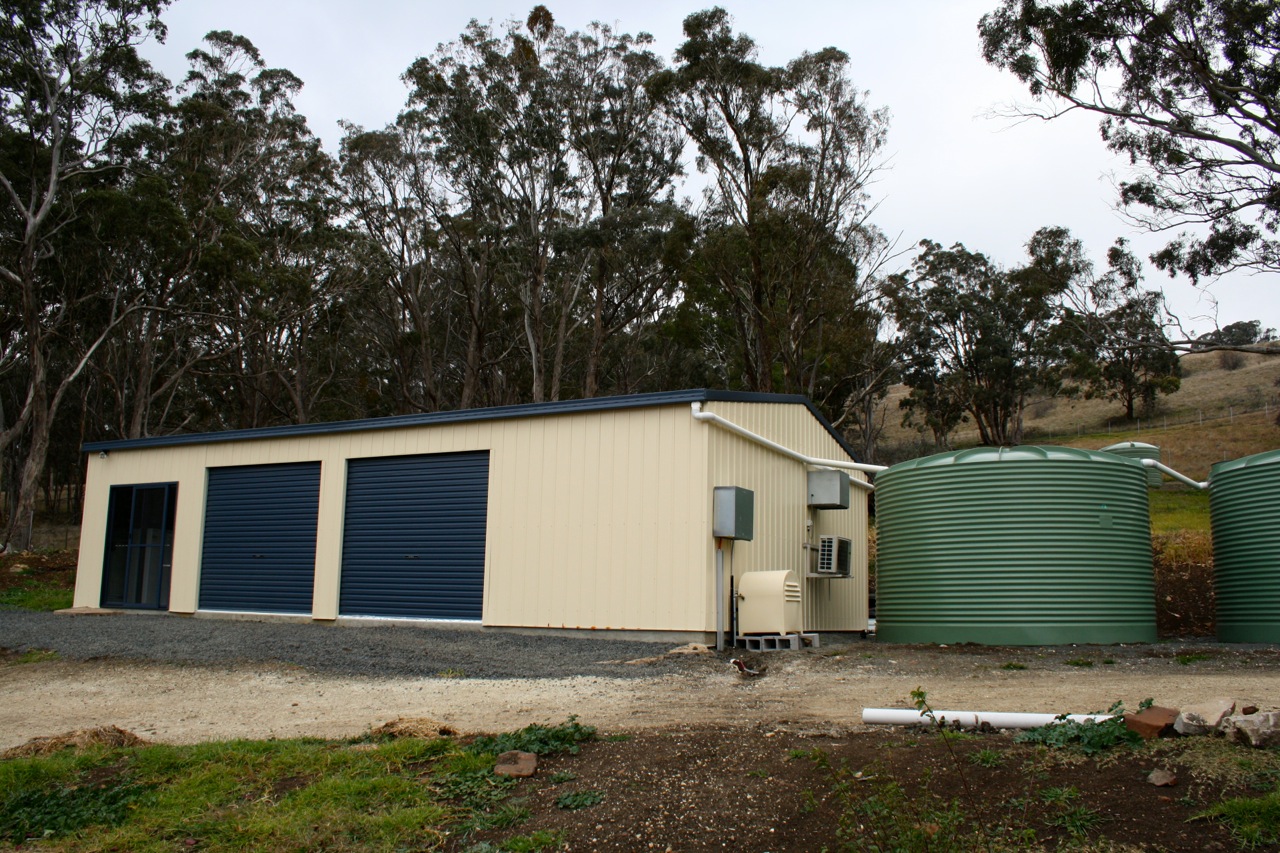
Gabe’s mushroom cultivation shed
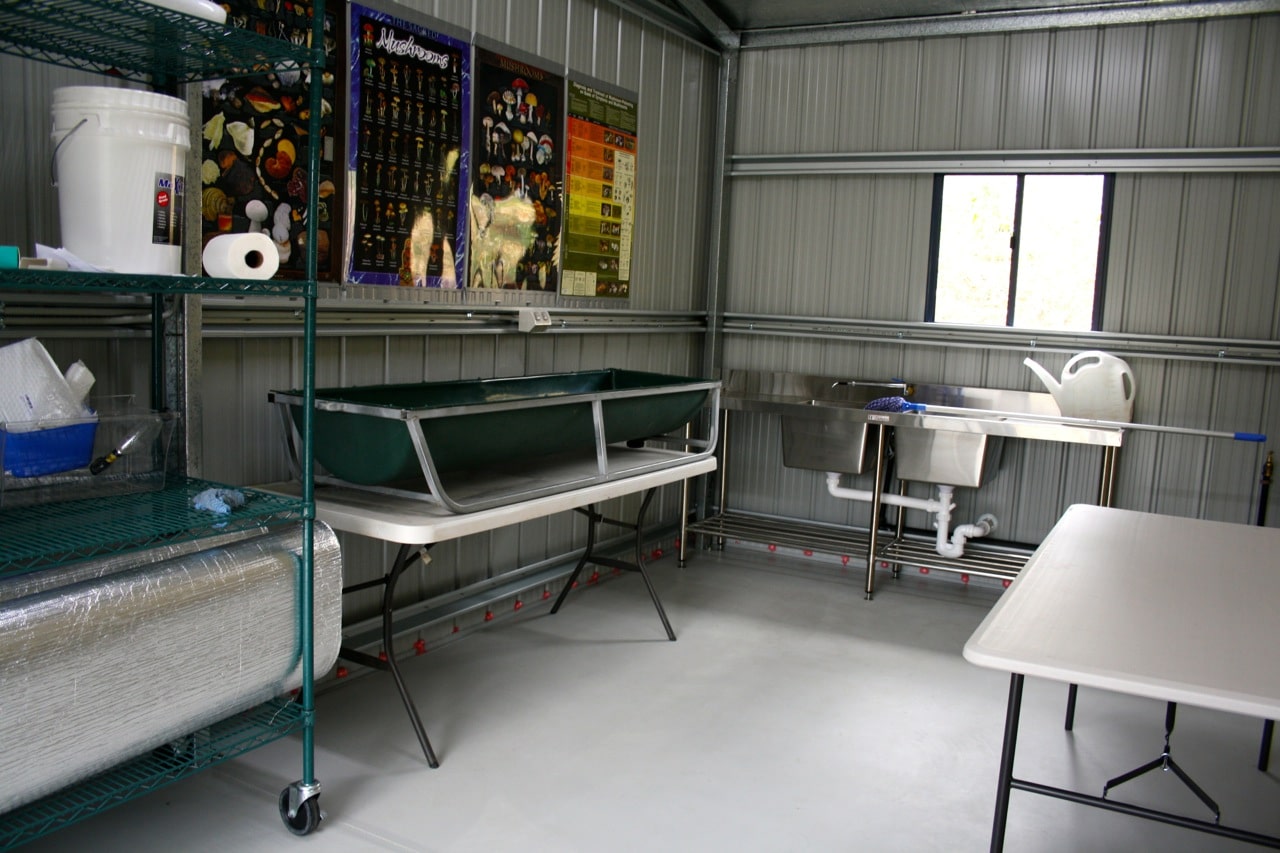
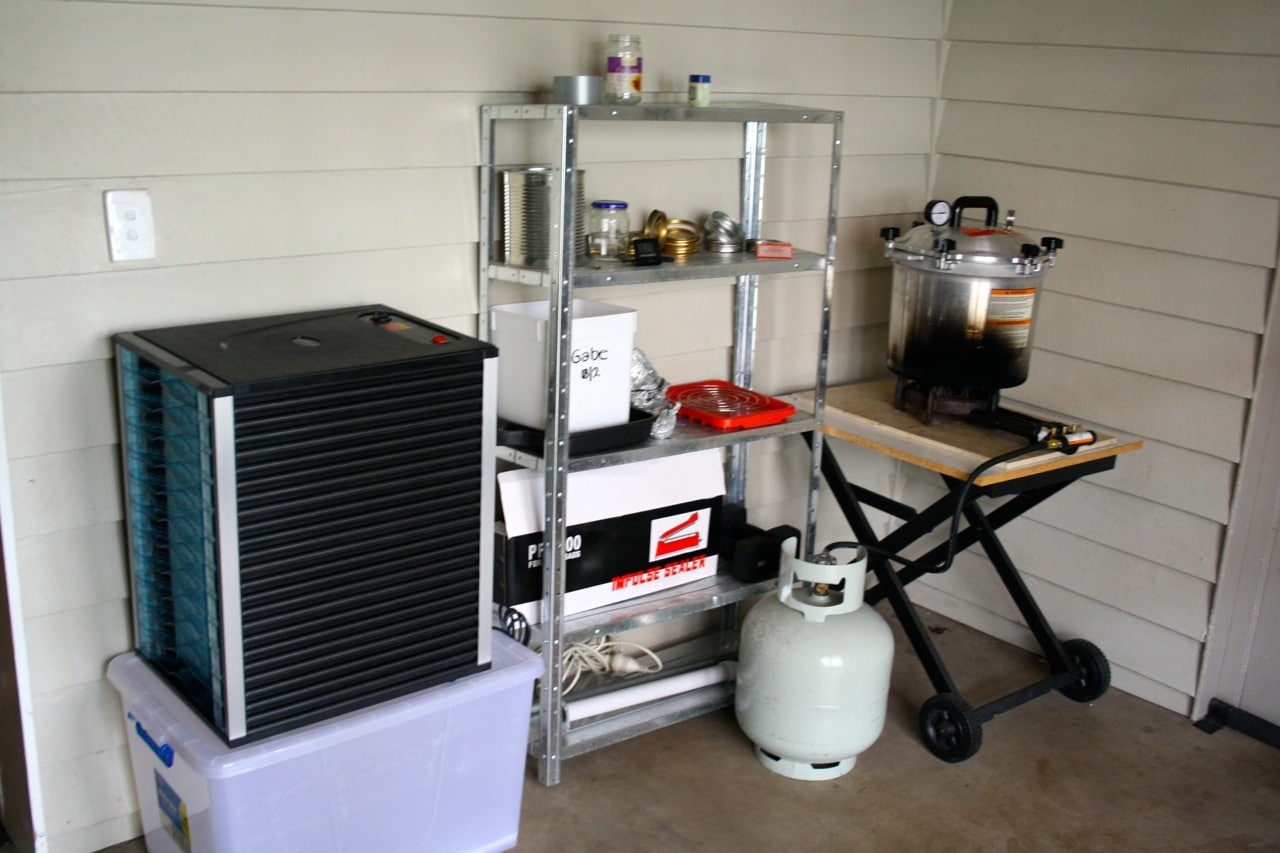
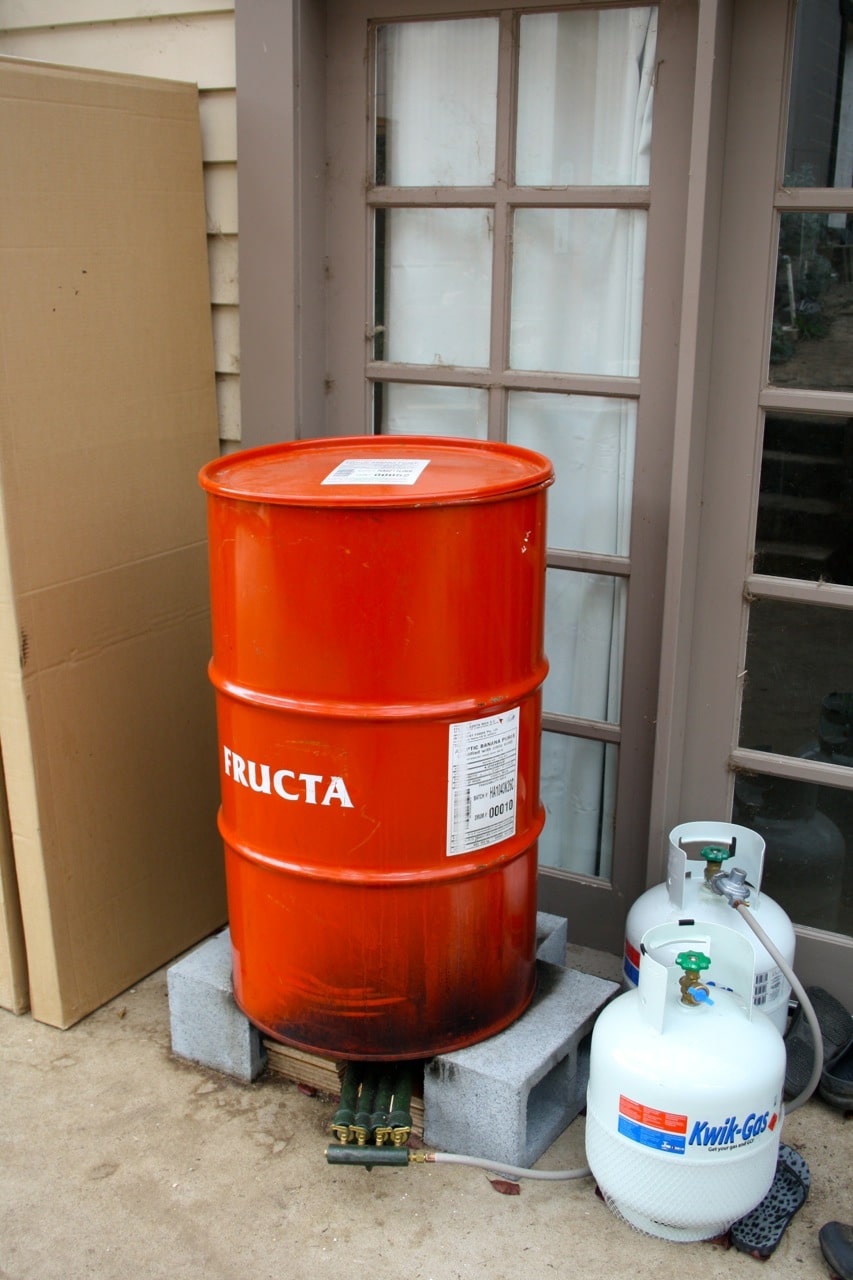
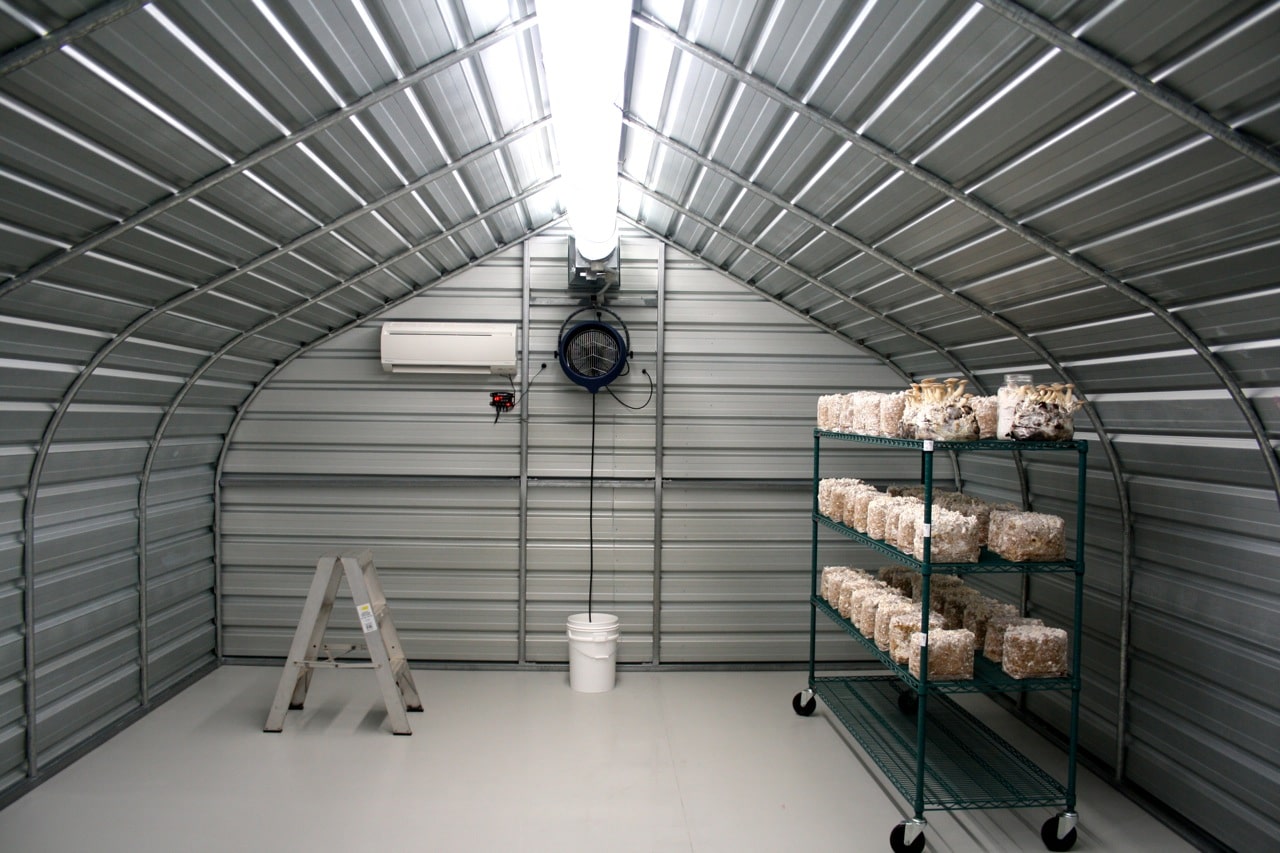
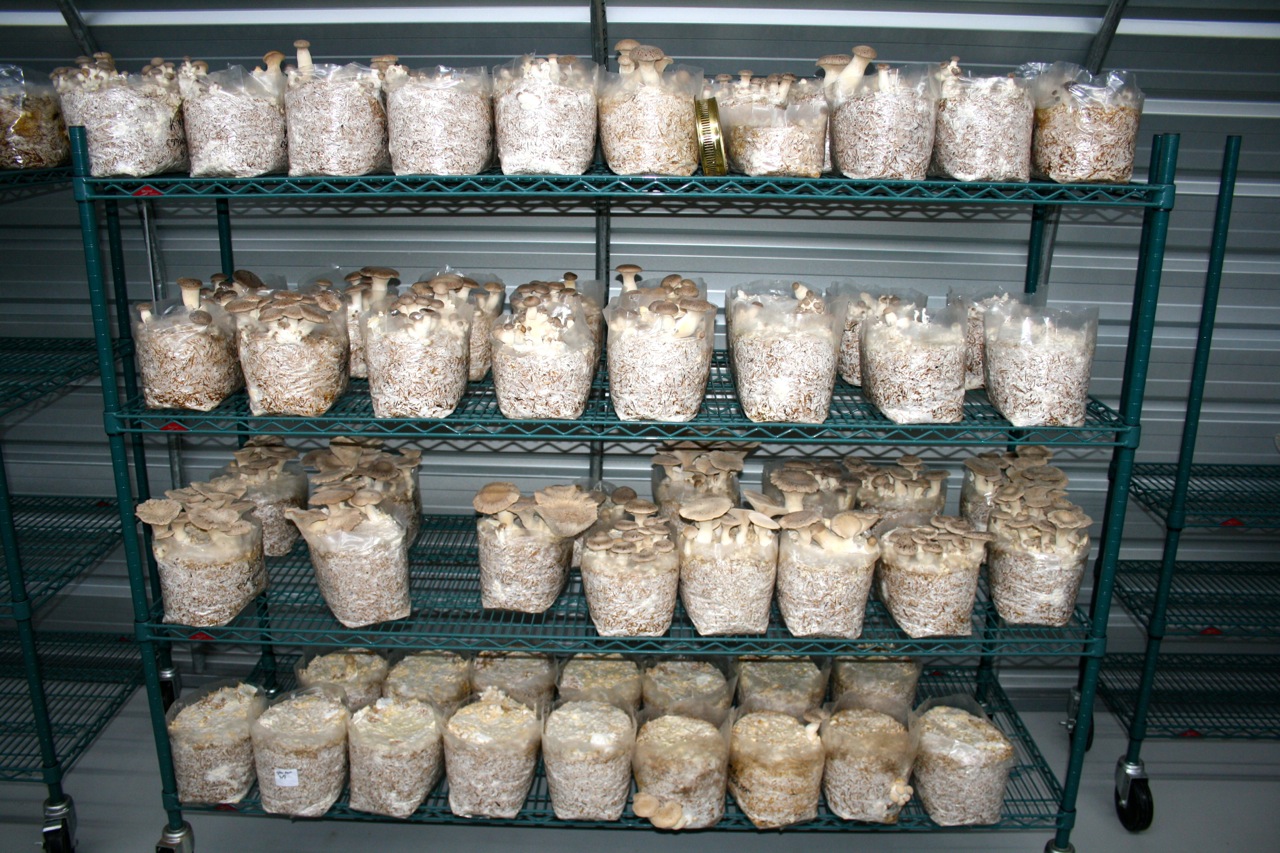
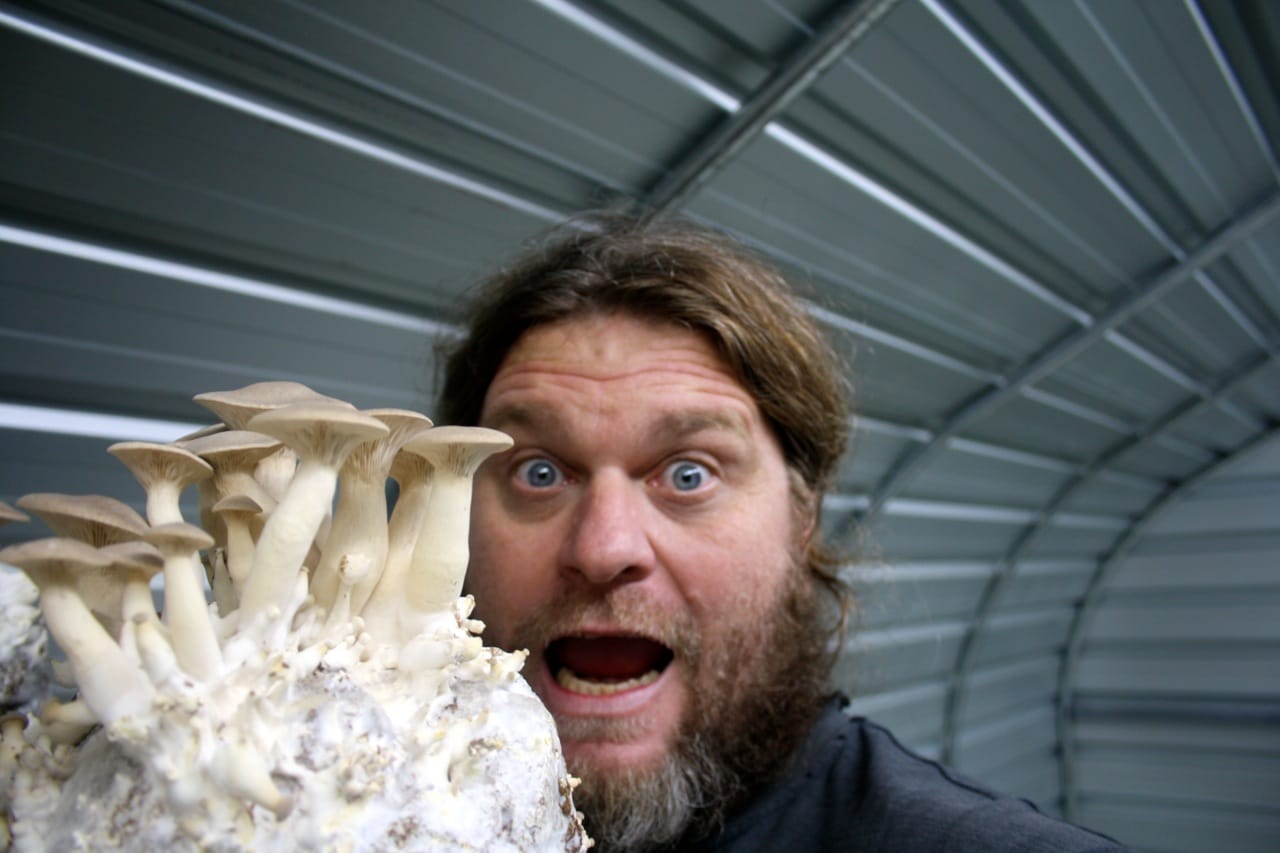
Gabe Staats is the owner and manager of Glenore Cottage Farm – his property in Guyra, NSW, near Armidale – where he lives with his two teenage children, and has started a very new small startup growing mushrooms along with some vegetables on the side.
“My main income, and what keeps me really busy, is the mushrooms,” says Gabe. “I’ve been almost a year at it. I’m using the Milkwood permaculture techniques and ideas that Nick [Ritar] taught us.
I did the mushroom course with Nick last November and followed all his info, links, websites and book list. After I did the course, I was like, ‘this is it, this is what I want to focus on’. I’ve been looking for a niche product for quite some time. I’m a chef by trade, so I enjoy the food.”
Gabe wasted no time mucking about. He started his setup almost straight away on the property he’d bought a few years earlier. Then in June this year he quit his job, having decided to have a go at growing mushrooms full time.
Before long, Gabe was supplying us with some materials for teaching our recent mushroom course, and by August he was growing 10 kg per week. Now, just a month later he’s producing between 15 and 20 kg per week. He’s aiming for 50 kg.
“It’s two steps forward one step back. But every month I climb a mountain. The first month was really scary I didn’t have many people to get much information from. But now that I’ve gone through all that it’s just pretty straightforward and common sense.”
Gabe sells his mushrooms, along with a variety of vegetables and herbs – and sometimes some tiger worms – at his local markets in Armidale twice a month, and sells out each time.
He’s also supplying a couple of local restaurants and cafes, including The Goldfish Bowl in Armidale, with his mushrooms, and has a few more lining up and waiting for his quantities to increase.
“I’m growing three mushroom [varieties] at the moment,” says Gabe. “King oyster are my main ones, I’ve just started with shitake and I do the blue pearl oyster. And I’ve just started doing take home grow kits as well.”
“I use sugarcane mulch and I’ve just started with sawdust. I’m doing shitake on sawdust blocks enriched with ricebran, gypsum and a few other things. I’m growing in plastic bags. It’s not economically viable to do it otherwise and get the yield I need.
I was looking to do it in buckets but they have to be really clean and sterile and that means a lot of water, and I don’t have that luxury out here. So it’s also what’s forced me to stick with the plastic bags.”
Gabe’s setup consists of a shed (12x7m) that was already on the property, with another shed (6.5×4.5m) tucked inside it as his growing room.
“In the shed as well is where I do my inoculating in the sugar cane mulch. And then in the house I have my lab – which was my bedroom, I’ve now moved out of there and I just sleep in the dining room – where I do my sterilising of grains. And then I have another room where I do the pasteurising. I guess to put it all together it’d be two sheds worth. It doesn’t take up too much space.”
With the large shed already on the property, Gabe estimates his setup costs to be between $50,000-$60,000, which includes equipment like a cold room, water tanks and his mushroom growing materials – something he has been updating along the way.
“I just got another steriliser to be more efficient. I’m pretty much a one-man band out here; time and water are [most valuable]. I need to be able to pump something out in minimum amount of time to be able to juggle all of it.
Being a dad as well and cooking homemade meals every night… I’ve really got to make it all fit in. It’s doable but you’ve just got to be 100 percent on the ball.
“Tomorrow I’ve got the next three days bagging up 72 bags in the next 3 days, that’ll guarantee me 30 kilos. If I don’t do that, the money ain’t coming in. I’ve got everything in a sequence, I’ve got all my grains in different phases.”
Selling his mushrooms for $45/kg (oysters) and $55/kg (shitake), Gabe is getting close to breaking even. “To make it comfortable out here, being a sole earner and all that, I’d like [to earn] at least a grand a week, once I’ve paid the bills.” He says his aim of 50kg per week should get him there.
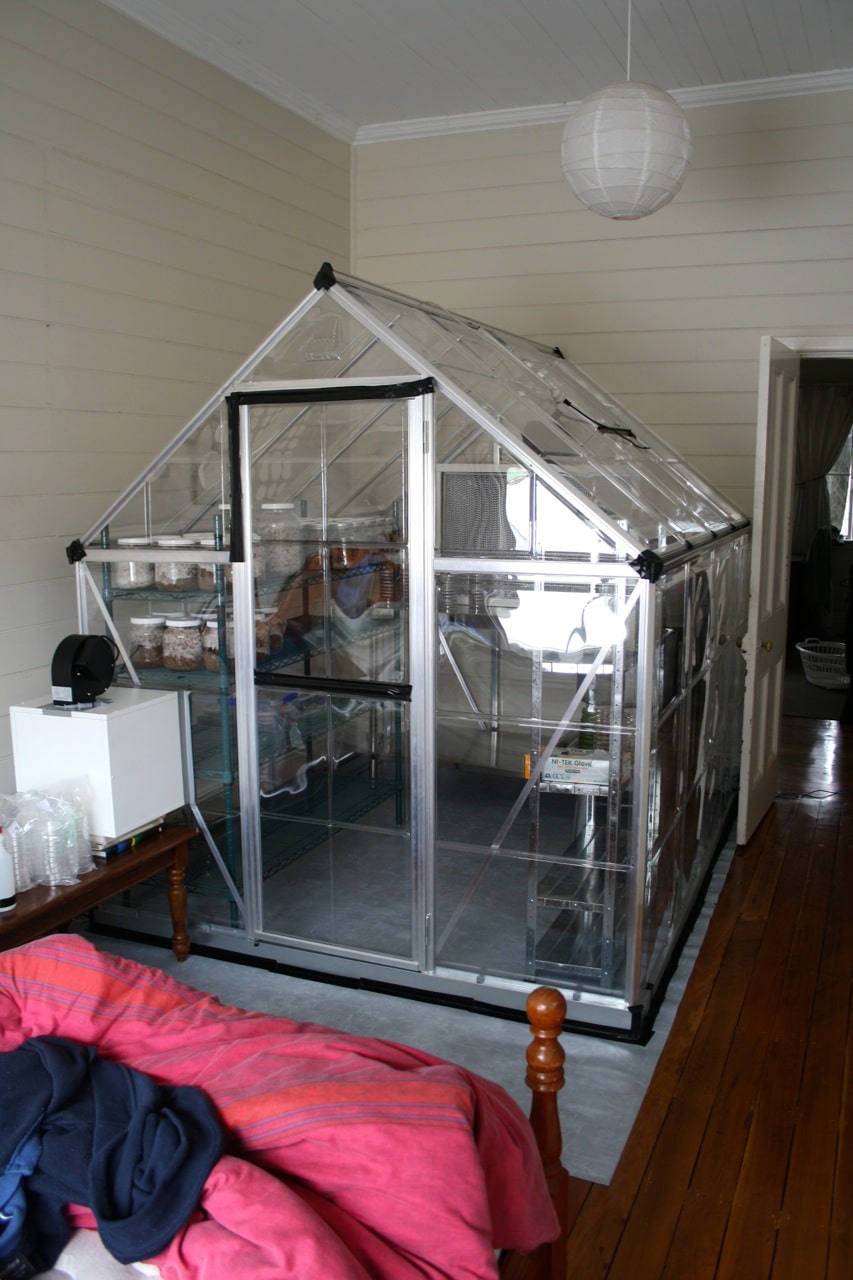
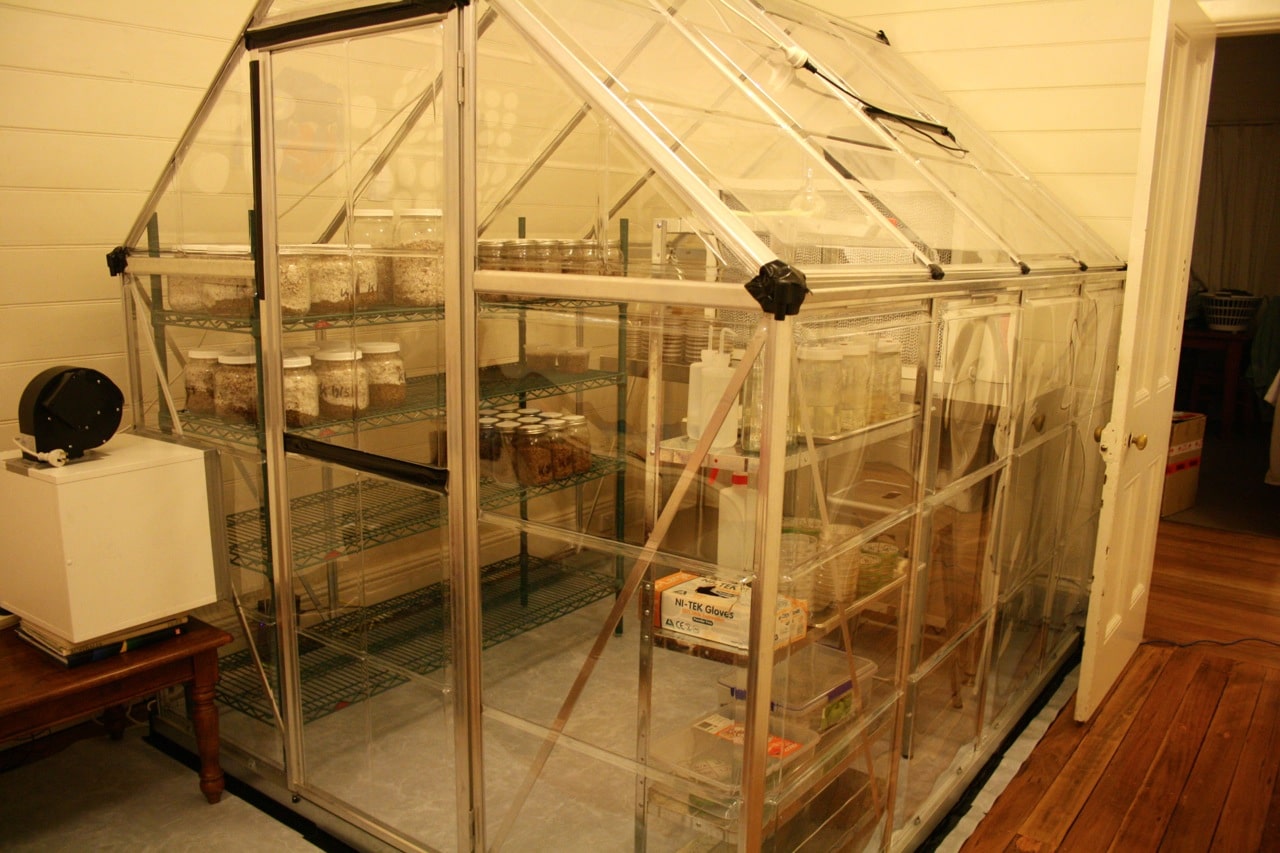
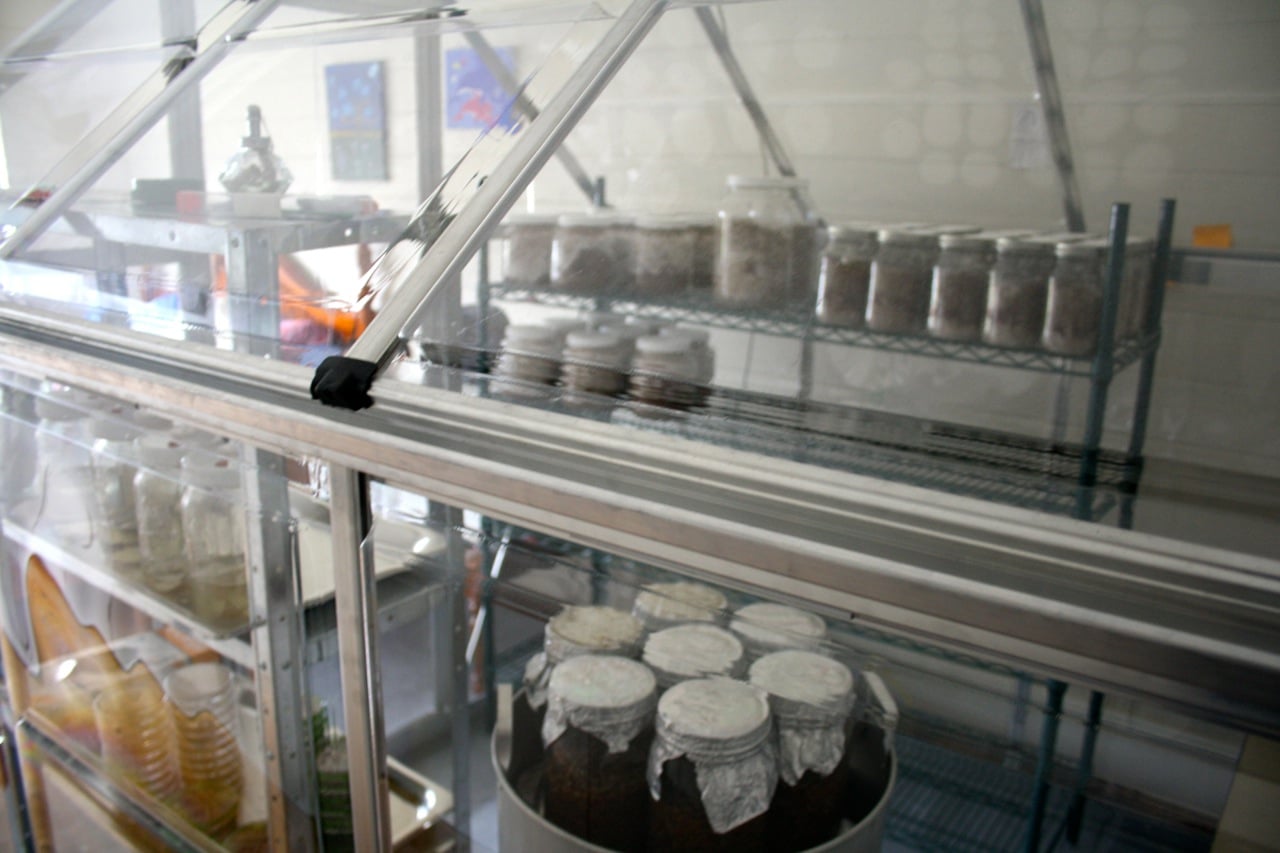
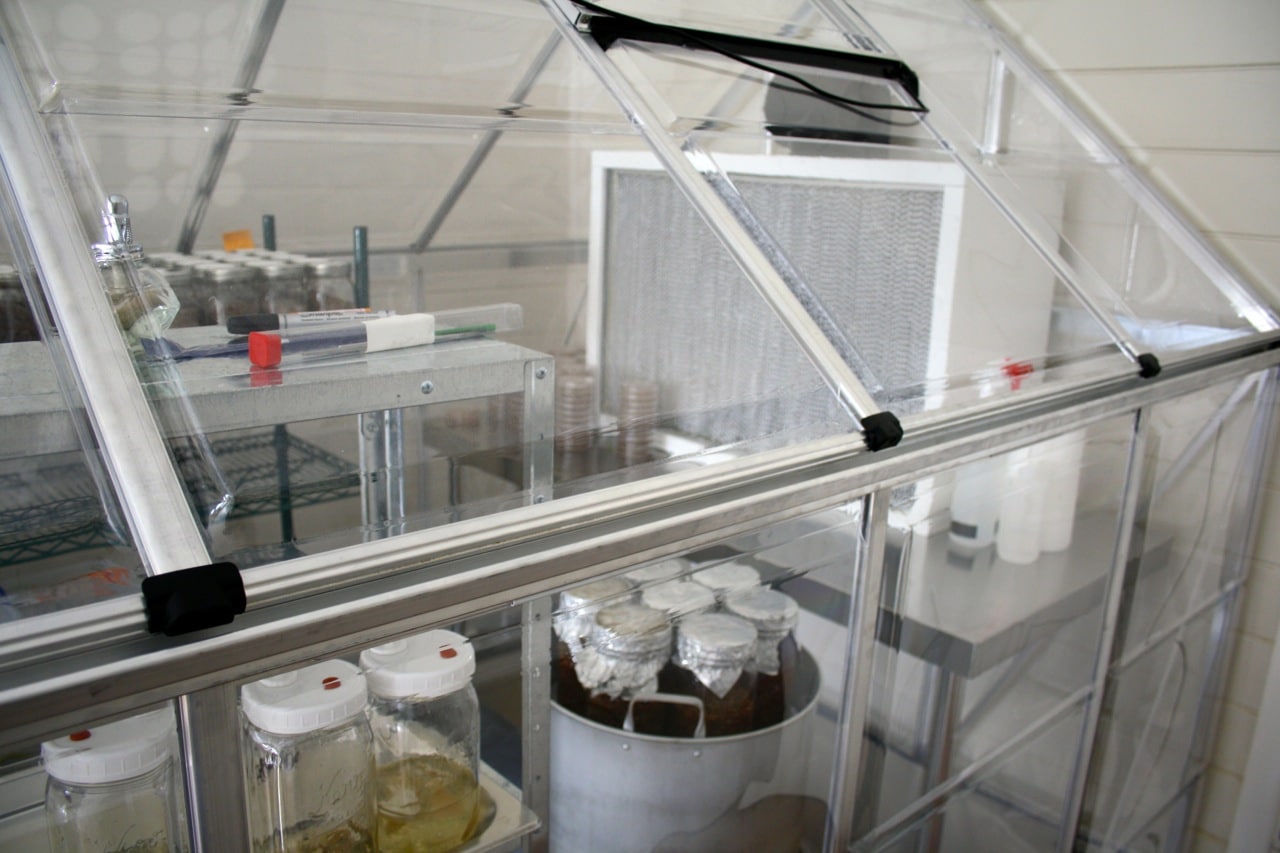
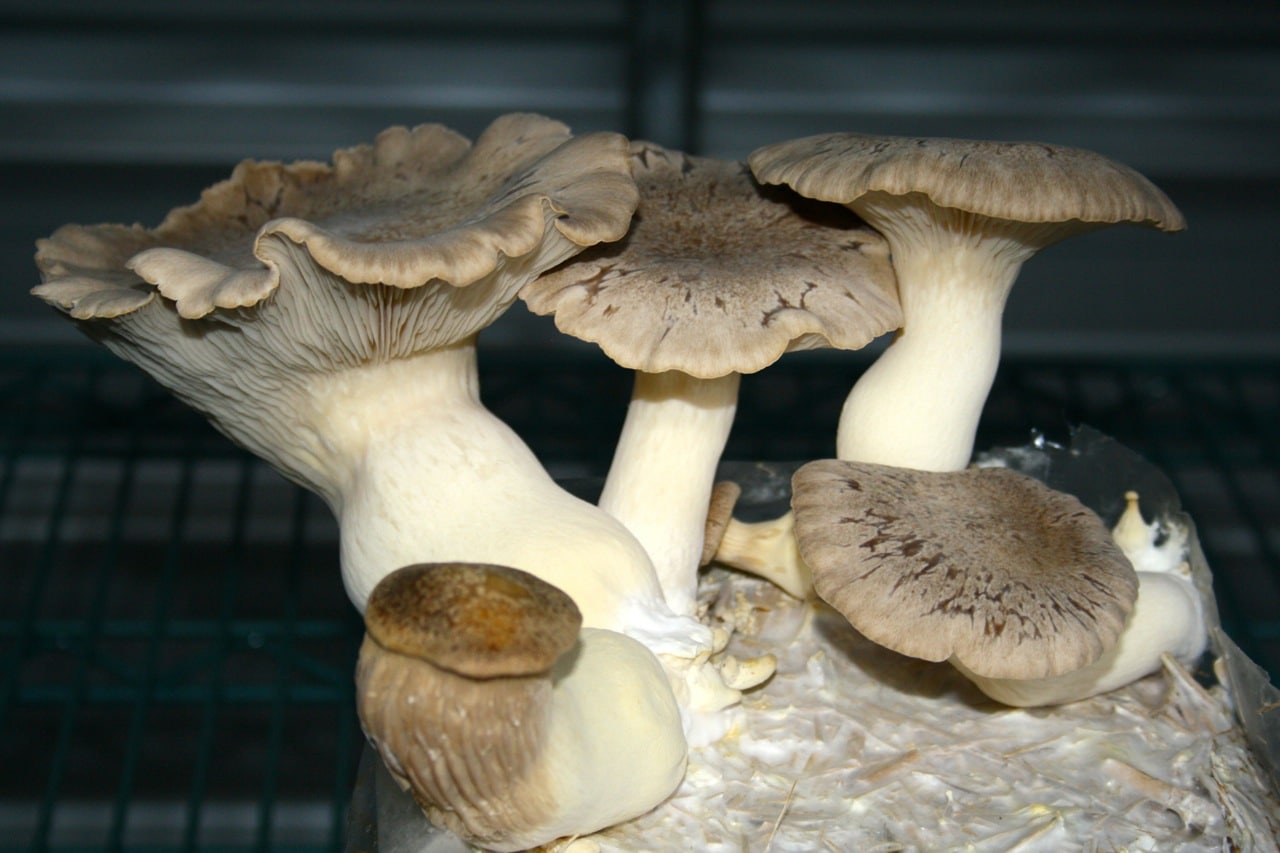
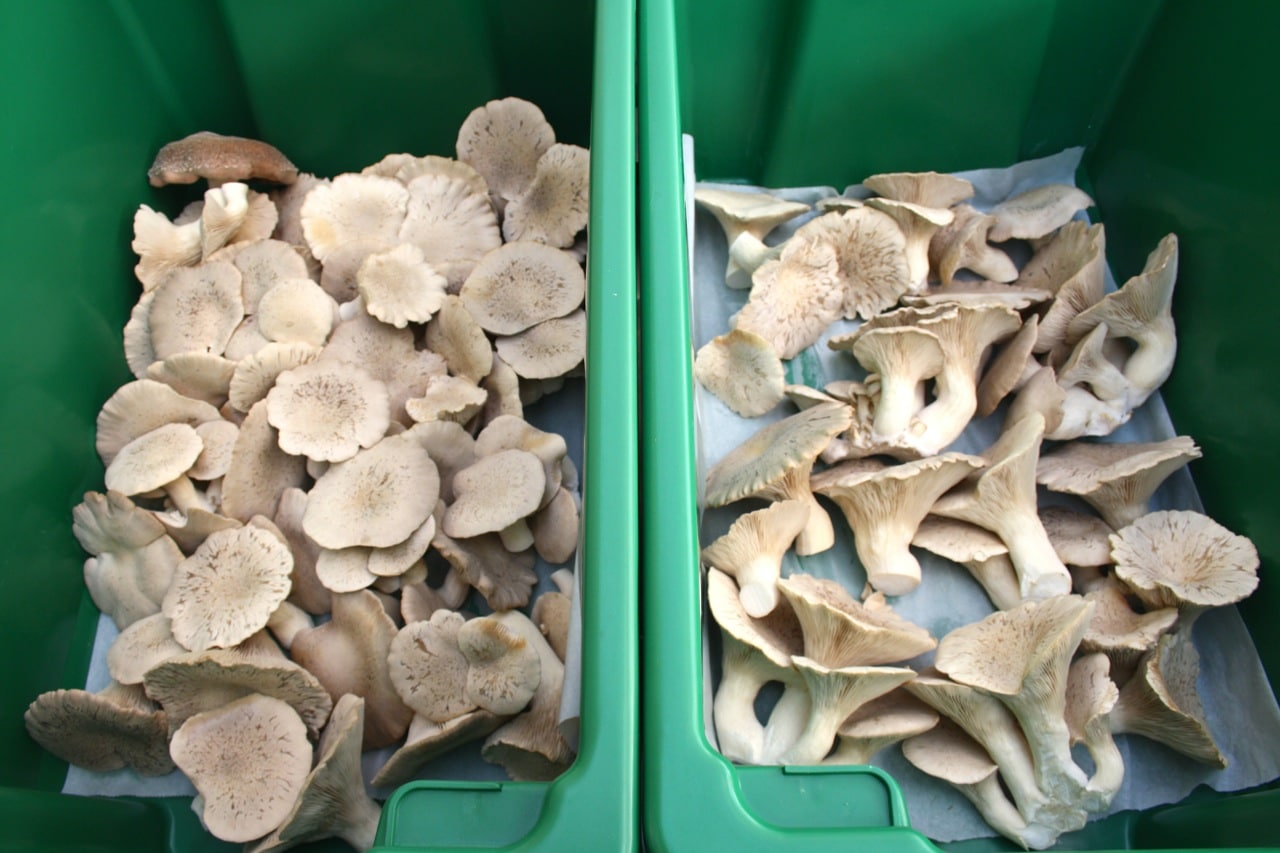
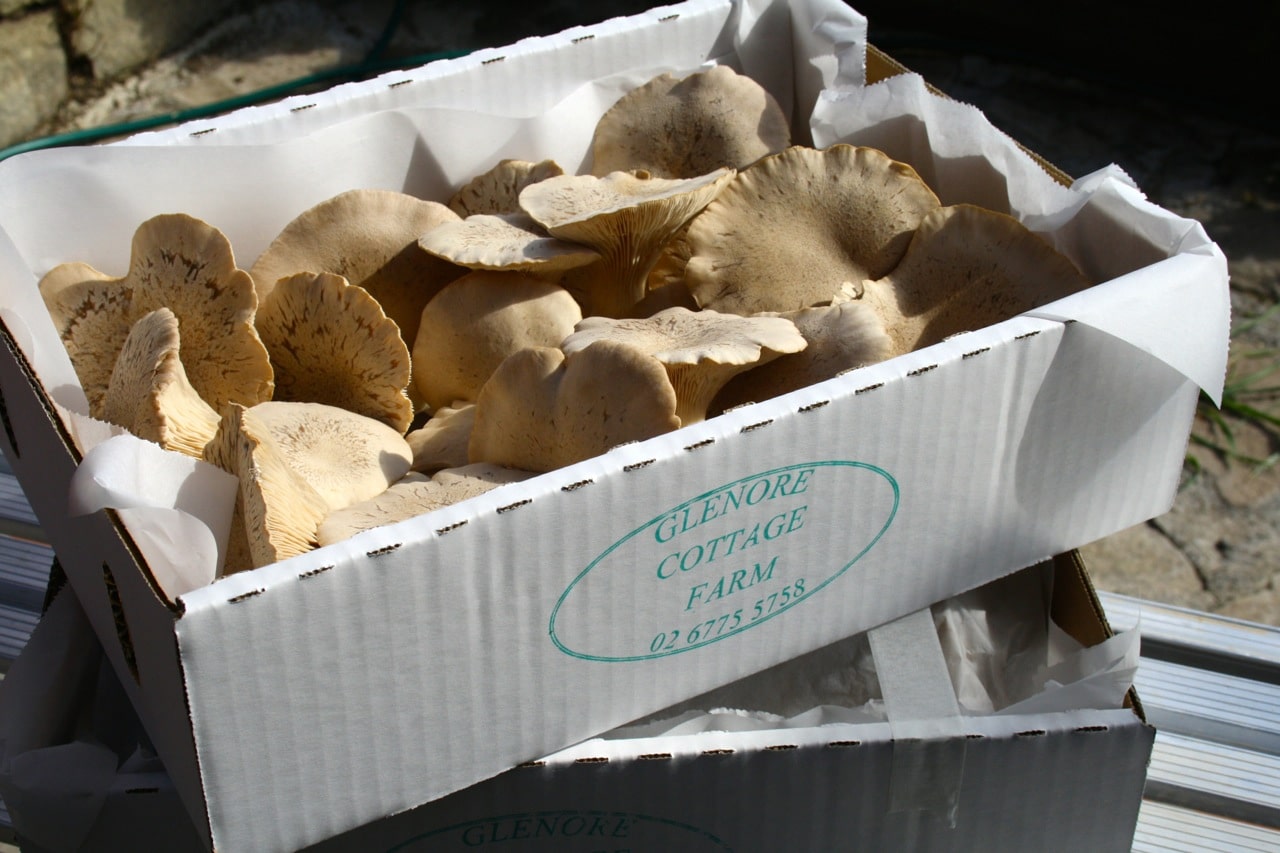
Though his vegie side of the business is technically on the side, Gabe – who also did our organic market garden course – has plans to extend that too this spring, increasing his current lot of five 14 metre beds to nine.
“I’m still a bit cautious – I’ve got space for 16 beds but I’m thinking, every season I’ll do one lot of four beds and see how my watering goes – that’s the main thing that restricts me.”
“I’ve got 150,000L in rainwater storage, and in the future, because we’re going to put in an orchard in next winter, when they’re bare-rooted, cheaper, dormant, easier to put in, we’ll need a dam to increase water capacity.
I’m starting to prep the orchard up and get it put in next winter and it’s 4-5 years before that [produces an income].”
A good future plan, as it doesn’t sound like Gabe is going anywhere else too soon. “The kids love living out bush, or remote areas – we have for most of our lives.
They love this lifestyle, I love it as well so we thought lets start up a family business, and we’ll do clean organic vegies and mushrooms. They’ll get older and hopefully add onto it as it’s growing and see where that takes us.”
To keep up to date with Gabe and Glenore Cottage Farm’s happenings, visit their Facebook page (updated by Gabe’s daughter) here. They’re also registered for wwoofing if you ever fancy heading that way for some volunteer work.
Thanks, Gabe! Much respect and keep up the inspiring work. We think you’re tops.
We run Gourmet Mushroom Cultivation courses in Sydney + beyond which include a swag of take-home cultures and fruiting bags (now produced by Gabe!) to get students growing.
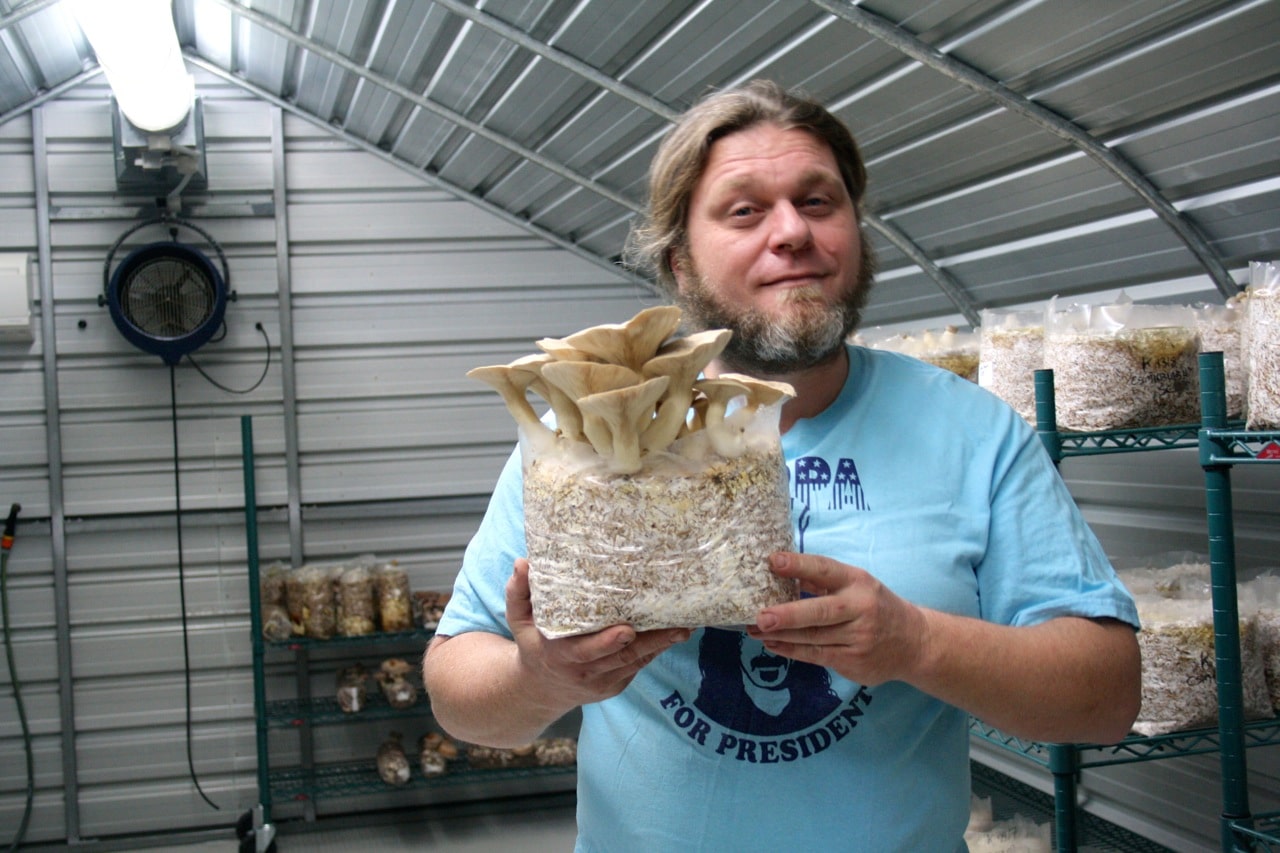

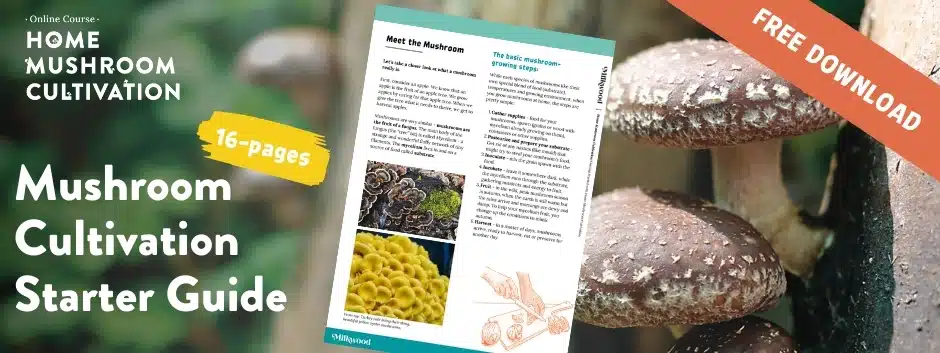
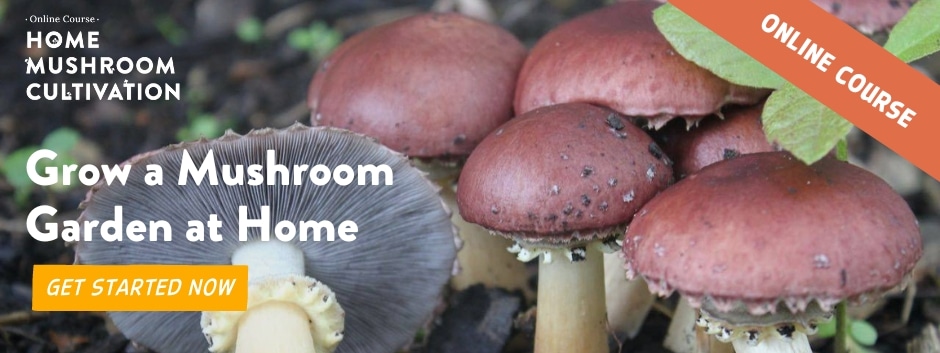
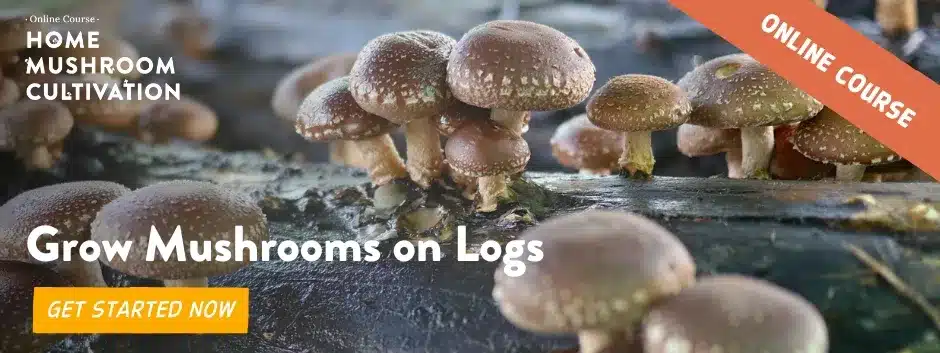
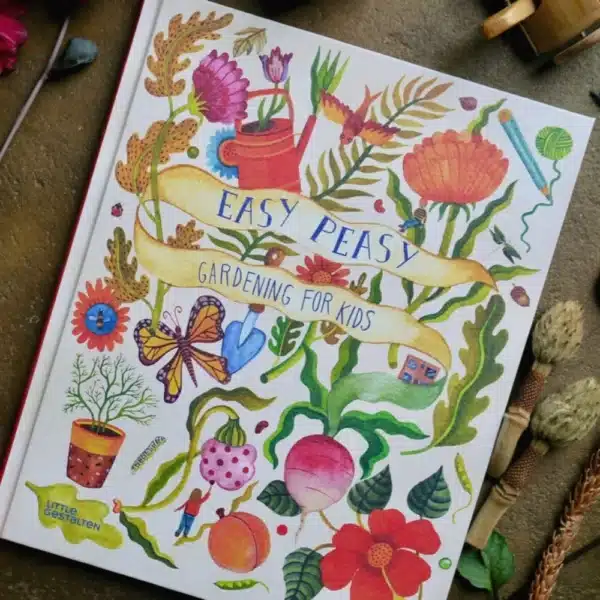
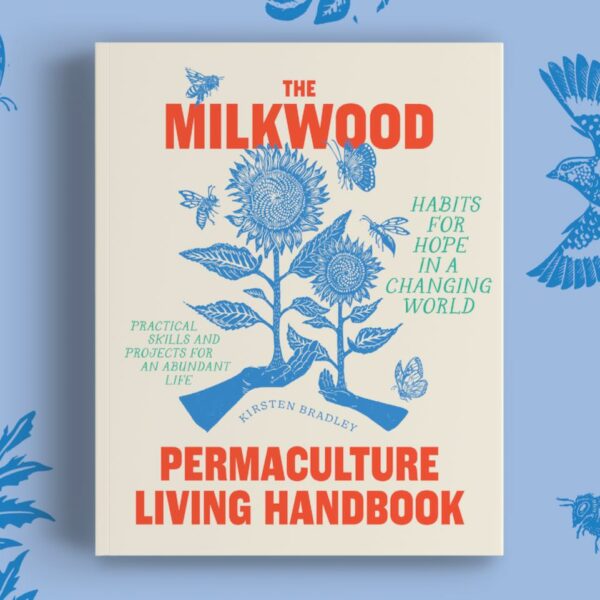
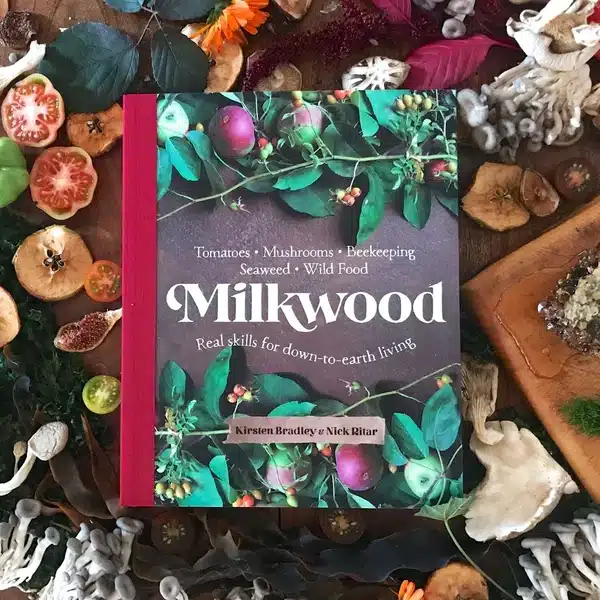






Awesome article! Thanks for sharing!
Makes me happy, the process of student to entrepreneur!
Reblogged this on A Random Harvest and commented:
Thinking of growing mushrooms? You may find this interesting . . . ~ Linne
Now there are some mushrooms for you. Well done!
Leslie
Gabe’s mushies are THE BOMB! I’ve picked up some King Oysters at the Armidale Farmer’s Market a few times now and they are absolutely delicious. Keep up the great work Gabe! I’ll definitely keep buying your produce!
Love what you are doing! Stuff like this gives me hope for the future of the planet. Keep up the good work.
I LOVE THE SHROOMS!!!!!!!!!!!
Awsome, walked the talk all the way to the bank, well done mate!
Inspirational!
interesting read, but kept waiting for the Permaculture parts!?
small-scale, organic local food production, grown on sugar cane waste. there you go 🙂
Surely Permaculture is much more than this!? the article screams of business as usual i.e. Make profit – “I’d like [to earn] at least a grand a week, once I’ve paid the bills.” Where is Earth Care? People Care? and Return of Surplus? and principles? Multifunction, multiple elements, energy audits, energy cycling (NOT using gas for heating), and so on – How are these an integral part of the business set up? and into the rest of the property? Examples of Permaculture businesses need to clearly be zero or less cost to the Earth, affordable to the pocket (under $5k?),… Read more »
if you don’t think that a single dad with three kids who is aiming to glean a right livelihood from dedicating himself to a home-based local food growing enterprise which every year, is getting better and better with low-waste + energy efficient techniques and reducing food miles for the local food system is a great example of a bunch of permaculture principles and ethics, then good luck to you matey.
Siding with D Graves above; the low-waste was not talked about in the article much at all – what is done with all the plastic bags and straw, etc? Is plastic reused somehow or just sent for recycling? straw, etc composted after use and how? energy efficiency was not mentioned either (except for showing 2 lots of gas bottles in use!) – no rocket stove or solar panels, etc. How is cold room powered? Are mushrooms sold in normal plastic or something better?Permaculture solutions for conventional problems? Nothing mentioned about the miles traveled for all the inputs, yes some about… Read more »
You have a point…. there is much that Gabe can do to reduce his waste outputs and energy inputs and to bring the operation more inline with Permaculture principles and ethics, but that doesn’t mean we shouldn’t admire the great work that he’s done already. The article does not claim that Gabe’s place is a perfect example of a complete permaculture system. Gabe’s farm is however a great example of a small scale, family friendly, enterprise that is supplying his local community with high quality organic food. This includes organic honey from natural hives, mixed organic vegetables from a small… Read more »
@permaculture police, one step at a time. I do wonder if some people understand that they are undermining well intended folks by shutting them down with dogma. The goal I imagine is to move in a Permaculture direction, not to expect perfection or nothing.
Just came across this when looking for small-scale low-tech mushroom enterprises in Australia. Milkwood, Melliodora and my former fellow student Ro Morrow are usually my starting points for such matters.
I read the comments above and am all the way with Ben W. We will achieve our future with encouragement, not with instant criticism of the lack of perfection on the first lap!